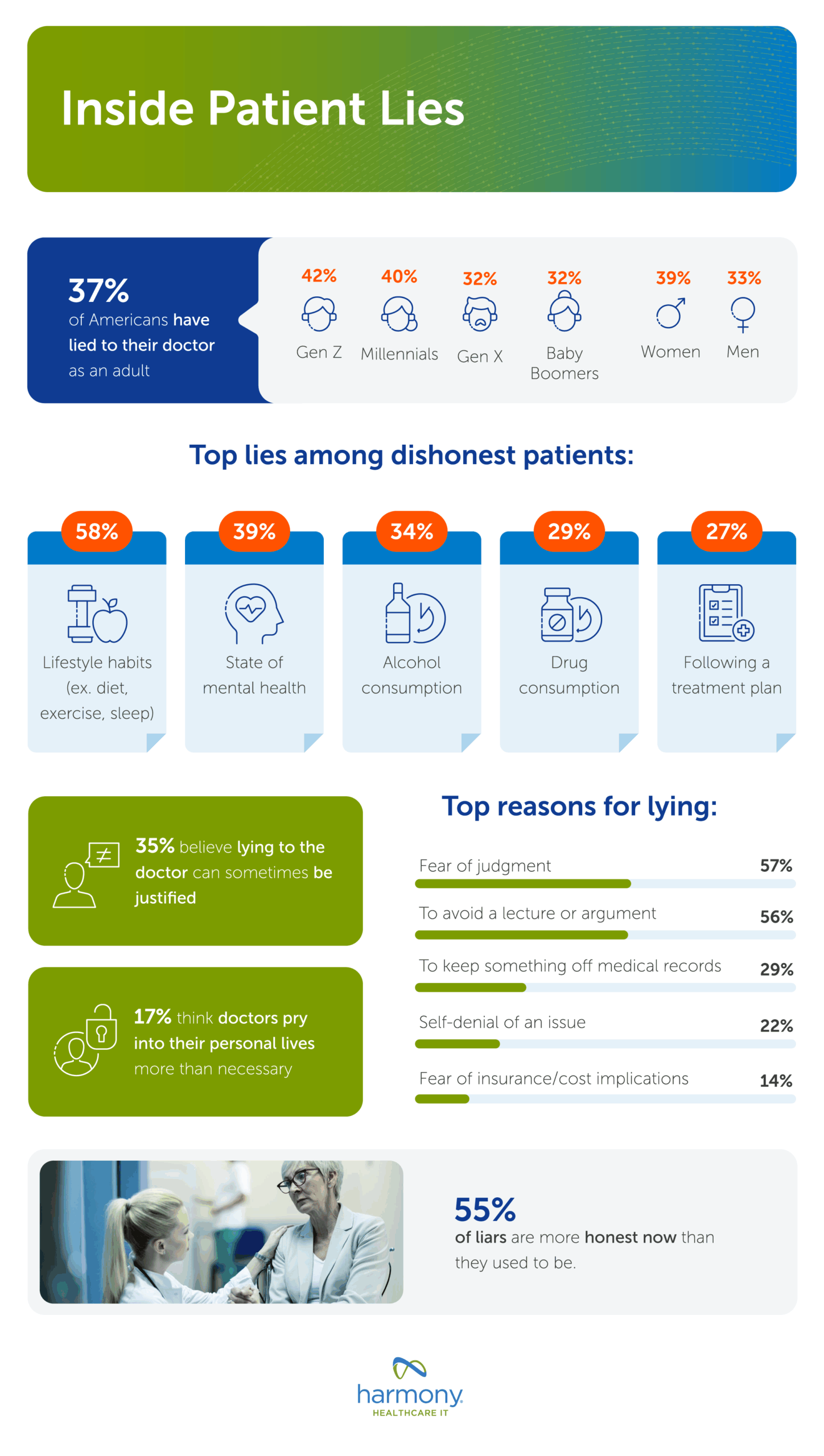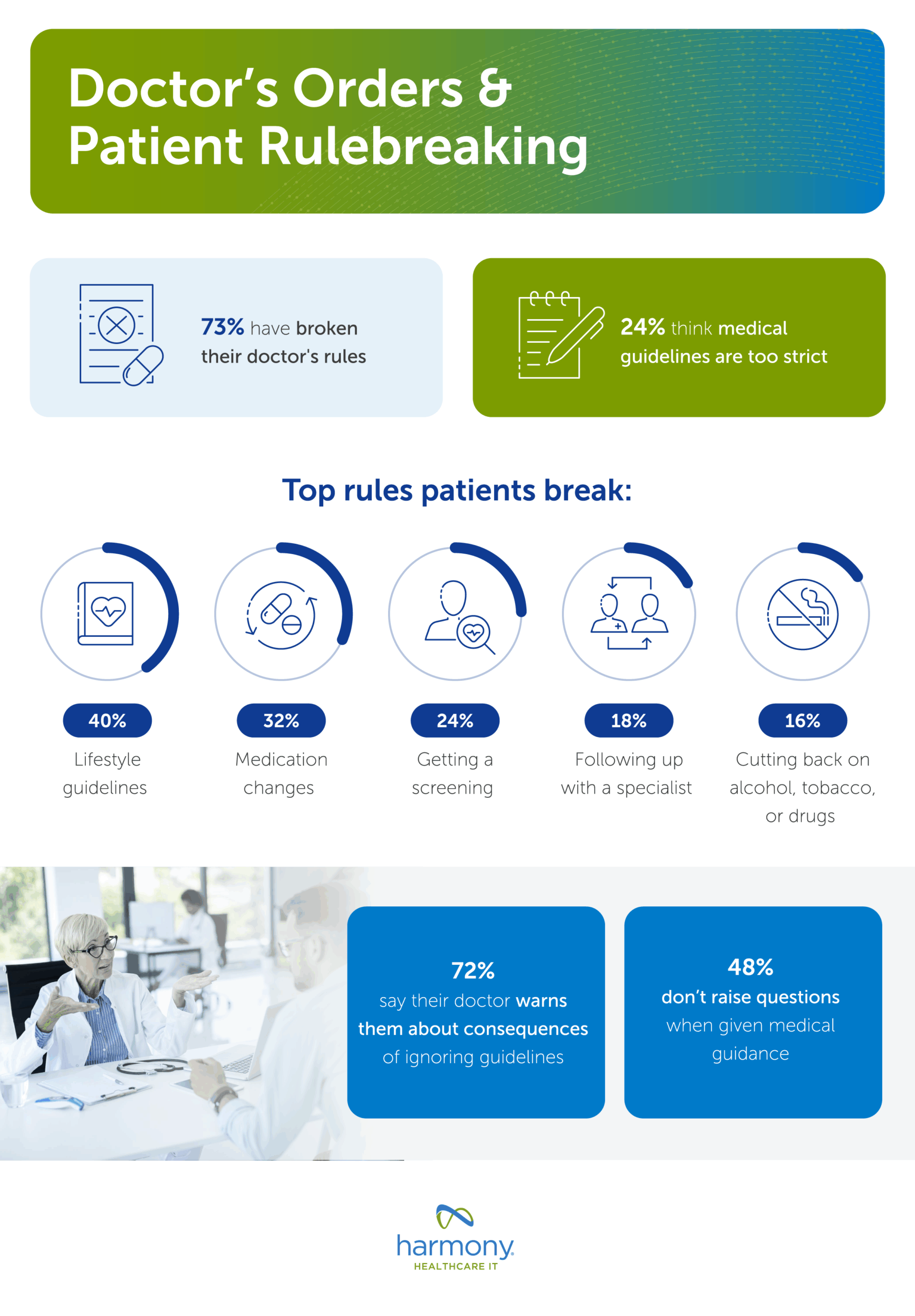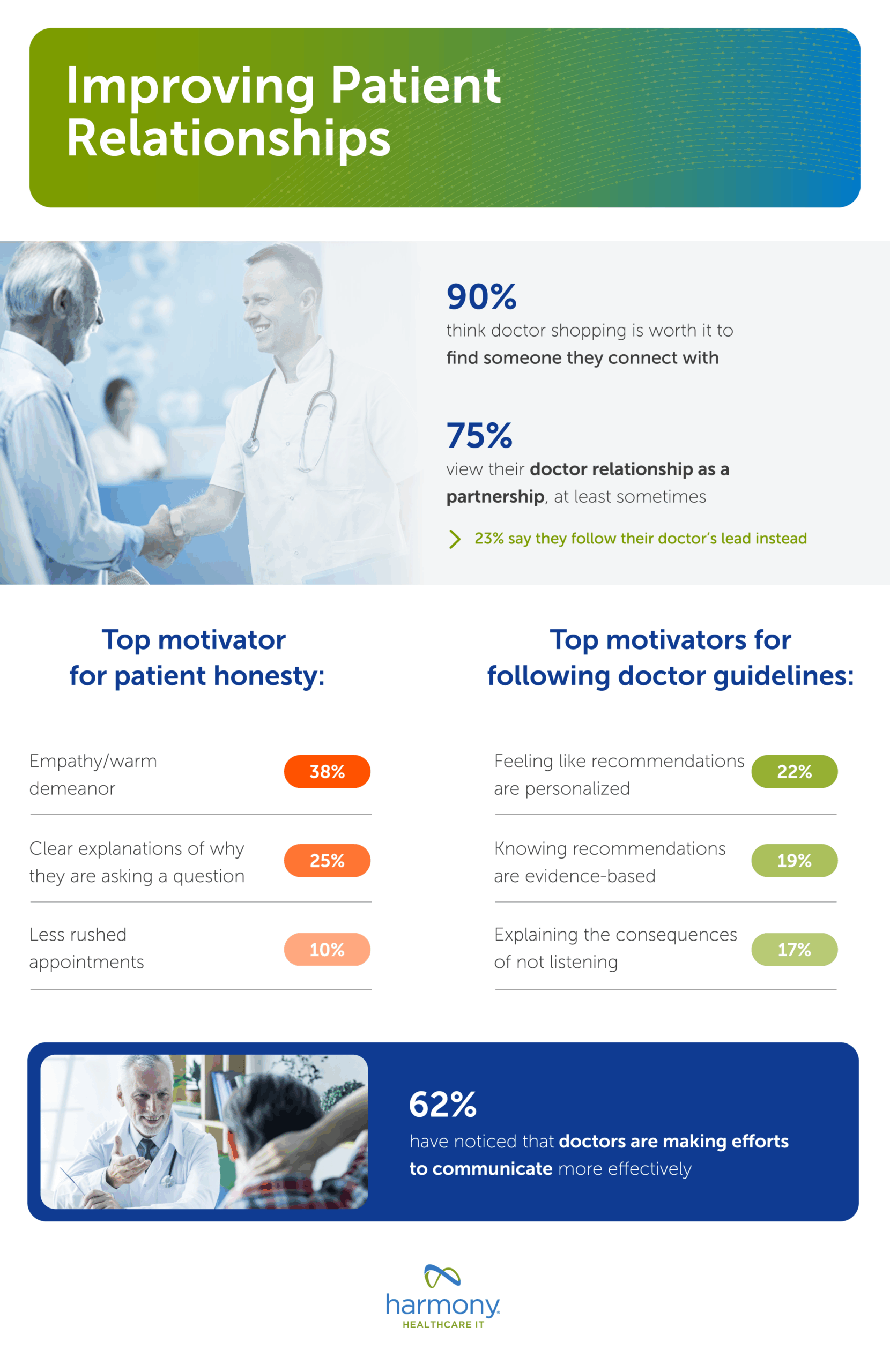
When doctors and patients communicate openly and honestly, it leads to more accurate diagnoses and improved health outcomes. A clear understanding of a patient’s medical history, including sensitive details such as substance use, can enhance safety and lower the risk of harmful drug interactions. Moreover, patients who feel safe being honest report higher satisfaction with their healthcare providers.
But the responsibility of being transparent is not only on the patients, our study found that there are also ways doctors can create safe environments that encourage honest communication.
The Honesty Gap: Why 37% of Patients Lie to Their Doctor

Our report found that 37% of Americans admit to lying to their doctors, especially younger generations. Nearly a third (32%) of Baby Boomers and Gen X are dishonest, while 40% of Millennials and 42% of Gen Z lie. When it comes to gender, 39% of women lie and 33% of men.
Patients are most likely to conceal aspects of their daily lifestyle, perhaps because they underestimate the impact on their health or because they view details like relationship status as too personal to share. Over a third (35%) believe lying to the doctors can be justified at times, and 17% think doctors pry into their personal lives more than necessary.
Top lies patients tell their doctors:
- Lifestyle habits (ex. diet, exercise, sleep) – 58%
- State of mental health – 39%
- Alcohol consumption – 34%
- Drug consumption – 29%
- Following a treatment plan – 27%
Patients value positive interactions with their doctors and often want to avoid conflict or embarrassment. The most common reasons for lying include fear of judgment or trying to sidestep a lecture or argument. Financial concerns also play a role—29% have hidden information to keep it out of their medical record, and 14% worry about potential insurance consequences.
Top reasons why patients lie:
- Fear of judgment – 57%
- To avoid a lecture or argument – 56%
- To keep something off medical records – 29%
- Self-denial of an issue – 22%
- Fear of insurance/cost implications – 14%
The good news is that over half (55%) of liars say they are more honest today than they were in the past, even though 86% did not experience negative consequences from lying.
Why So Many Patients Ignore Medical Advice

Another harmful patient behavior is ignoring guidelines and recommendations. Our study found that 73% of patients admitted to breaking their doctor’s rules, even though their doctors warn them of consequences 72% of the time.
Many of them think that doctors are being too cautious of consequences, with nearly a quarter (24%) reporting that medical guidelines are too strict. Another reason they could sidestep recommendations is to avoid discussion or hurry up. Nearly half (48%) fail to raise questions when given medical guidance.
The top rule that patients break is their doctor’s lifestyle recommendations, like not getting enough sleep or exercising. Next in line were medication changes, including behaviors like taking larger doses than prescribed or not finishing a round of antibiotics.
Top rules patients break:
- Lifestyle guidelines – 40%
- Medication changes – 32%
- Getting a screening – 24%
- Following up with a specialist – 18%
- Cutting back on alcohol, tobacco, or drugs – 16%
Empathy & Warmth is the Top Motivator for Patient Honesty

In the age of healthcare AI, telehealth, and rushed appointments, patients are seeking a personal touch and connection. Almost all (90%) think doctor shopping is worth it to find someone they connect with.
The data shows that kindness is the key to building connection and laying the foundation for open doctor and patient communication. When asked about their top motivators for honesty, 38% of patients responded with empathy and warm demeanor. Patients also want to know why a doctor is asking for private information. Without that context, they may hesitate to share details or feel as though the questions are unnecessarily intrusive.
Top motivators for patient honesty:
- Empathy/warm demeanor – 38%
- Clear explanations of why they are asking a question – 25%
- Less rushed appointments – 10%
Patients describe a range of relationships with their doctors. Most (75%) feel they work in partnership (at least some of the time) collaborating on medical decisions, while 23% say they primarily follow their doctor’s lead.
When it comes to listening to their doctor’s rules, the top motivator for compliance is feeling like recommendations are tailored to them. Patients would also be motivated by knowing recommendations are evidence-based and understanding the consequences of not listening.
Top motivators for following doctor guidelines:
- Feeling like recommendations are personalized – 22%
- Knowing recommendations are evidence-based – 19%
- Explaining the consequences of not listening – 17%
Although many patients admit to lying or breaking their doctor’s rules, most still recognize efforts to create a better experience. In fact, 62% said they’ve noticed doctors making strides to improve communication.
Building stronger communication and trust between doctors and patients is only part of the equation in growing a healthcare organization. They also need reliable systems that support accurate, accessible data.
Harmony Healthcare IT partners with healthcare organizations to ensure that legacy data is managed with security and precision. Through a consultative approach, we help determine which records should be migrated into new systems and securely archive the rest. Our solutions, including HealthData Archiver®, AR Manager®, and HealthData Locker™, provide organizations with streamlined access, compliance support, and long-term data protection.
Methodology
In September 2025, we surveyed 1,000 Americans about their interactions with doctors. Among respondents, 49% were men, 49% were women, and 2% were nonbinary or preferred not to say. Ages ranged from 19 to 75 with an average age of 45.
Fair use
When using this data and research, please attribute by linking to this study and citing www.www.harmonyhit.com.






